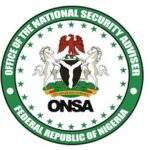Confirmation that some banks have started complying with the judgement of an FCT High Court nullifying requirements to declare clients’ financial transactions to law enforcement agencies is a major relief to lawyers in the country, Weekend Trust gathered.
Legal circles have been uneasy since the amendment of the Special Control Unit Against Money Laundering (SCUML) in 2011 to include lawyers’ mandatory reporting of clients’ financial transactions as a way of checking money laundering.
At each forum whether workshops or conferences, lawyers take time to debate the propriety of the provision and its impediment to law practice, especially as it offends the provisions of the lawyer-client privilege.
Lawyers have expressed concerns that the SCUML, the Rules of Professional Conduct and the NBA Rules and Guidelines on Anti-Money Laundering and Counter-Terrorism Financing were not made to interfere with lawyer-client privilege.
- Flood: Borno announces reliefs account, urges donation for victims
- PDP governors nominated appointtees to Tinubu –Wike
However, the tension generated by the provision has been tempered by the July judgment of a Federal High Court in Abuja which struck down the requirements of the law after an Abuja-based lawyer, Arome Abu Esq, filed a suit in the court.
Justice Obiora Egwuatu in his judgement held thus, “a declaration is made that the inclusion of ‘notaries’ and re-inclusion or red categorisation of ‘legal practitioners’ in the definition list of designated non-financial businesses and professionals in Section 30 of the Money Laundering (Prevention and Prohibition) Act 2022 is null, void and unconstitutional.
“An order of perpetual injunction is made restraining the 1st Defendant (CBN) from taking any step to implement its circular referenced FPR/DIR/PUB/CIR/001/052 dated June 20, 2022 and the Economic and Financial Crimes Commission (Anti-Money Laundering, Combating the Financing of Terrorism and Countering Proliferation Financing of Weapons of Mass Destruction in Financial Institutions) Regulations, 2022 is unconstitutional, null and void.”
The fact that the latest order was not appealed against and banks have started complying gives a ray of hope to lawyers after the umbrella body of lawyers, the NBA challenged the same provisions in 2013 without much success.
Sections 6,7,8,9,11 and 30 of the Money Laundering (Prevention and Prohibition) Act 2022 provide that financial institutions and lawyers are to avoid banking secrecy and confidentiality of transactions.
Further to these provisions, the Central Bank of Nigeria (CBN) on June 20, 2024, in a circular with reference number: FPR/DIR/PUB/CIR/00/052 directed all banks, other financial institutions (OFI) and payment service providers (PSPs) to immediately comply with the provisions of the “CBN (Anti-Money Laundering, Combating the Financing of Terrorism and Countering Proliferation Financing of Weapons of Mass Destruction in Financial Institutions) Regulations 2022.”
The circular signed by the Director of the Financial, Policy and Regulation Department of the CBN, Chibuzo Efobi said the directive followed the review of the CBN/CFI anti-money laundering regulation 2013 and its amendments to comply with the provisions of a new regulation titled: “Central Bank of Nigeria (Anti-Money Laundering, Combating the Financing of Terrorism and Countering Proliferation Financing of Weapons of Mass Destruction in Financial Institutions) Regulations, 2022.”
National agencies like the Economic and Financial Crimes Commission (EFCC); the Independent Corrupt Practices Commission (ICPC); and the Nigerian Financial Intelligence Unit (NFIU) have been enforcing these provisions.
Arome Abu’s suit is a follow-up to the NBA suit, which also challenged a similar circular to financial institutions to ask their customers to update their account information with evidence of registration with the Special Control Unit Against Money Laundering (SCUML), especially as it relates to legal practitioners’ obligations under sections 20 and 21 of the Legal Practitioners Act, Section 192 of the Evidence Act and Section 37 of the Nigerian Constitution 1999 (as amended).
In his judgement, Justice Gabriel Kolawole granted the reliefs sought by the NBA against the CBN and held that legal practitioners were excluded from complying with the requirements of SCUML.
Dissatisfied with the verdict, the CBN appealed at the Court of Appeal and the appellate court led by Justice Emmanuel Agim similarly dismissed the appeal declaring that “the establishment of SCUML as it relates to lawyers is contrary to the provisions of the Legal Practitioners Act and that legal practitioners in Nigeria owe clients a duty to keep private and confidential, their correspondences and communication, hence the money laundering regime undermines this obligation.”
This verdict was relied on by the Court of Appeal in a related suit between the Federal Republic of Nigeria vs Chief Mike Ozekhome (SAN) (2021) 9 NWLR (Pt. 1782) page 448 to further declare that legal practitioners were excluded from the definition of designated non-financial institutions contained under Section 25 of the Money Laundering (Prohibition) Act 2011.
The latest suit filed by Abu was caused by his experience on September 27, 2022, when a bank, the Guaranty Trust Bank restricted his law firm’s three accounts containing foreign currencies following the earlier CBN circular despite the law passed by the National Assembly on March 16, 2022 abolishing some aspects touching on sale of property, purchase or sale of any business, management of client money, securities or other assets, creation, operation or management of trust, companies or similar structure.
He further contended that the SCUML provisions established under the Money Laundering (Prevention and Prohibition) Act as it relates to legal practitioners are unconstitutional, null and void.
He demanded an order of perpetual injunction restraining the 1st Defendant (CBN) from taking any step to implement its circular referenced FPR/DIR/PUB/CIR/001/052 dated June 20, 2022 and the Economic and Financial Crimes Commission (Anti-Money Laundering, Combating the Financing of Terrorism and Countering Proliferation Financing of Weapons of Mass Destruction in Financial Institutions) Regulations, 2022 “in so far as it purports to apply to legal practitioners.”
Replying, the CBN contended in its counter affidavit that Abu’s refusal to obtain the SCUML certificate breached sections 30(1) and 17(2) of the Money Laundering (Prevention and Prohibition) Act (MLPPA) 2022 and Section 63(1) of the CBN (Anti-(Anti-Money Laundering, Combating the Financing of Terrorism and Countering Proliferation Financing of Weapons of Mass Destruction in Financial Institutions) Regulations, 2022, adding that the National Assembly was in full compliance of the Court of Appeal judgement in FRN vs Ozekhome by enacting the Money Laundering (Prevention and Prohibition) Act 2022 which repealed the Money Laundering (Prohibition) Act 2011.
On their part, the EFCC countered the suit by arguing that the plaintiff (Arome Abu) did not contemplate the provisions of Section 11(4) of the Money Laundering (Prevention and Prohibition) Act 2022 concerning legal practitioners with functions in sections of the Act which does not limit them from performing their duties and responsibilities to their clients just like other professionals like accountants, secretaries, real estate agents, etc.
The judge dismissed all the counter-affidavits and upheld the plaintiff(Abu)’s position.
Although banks began complying with the latest judgement on the anti-money laundering law as a bank wrote to its client: “Following the recent judgement in Suit No: FHC/ABJ/CS/25/2023 Abu Arome Vs CBN & 3 Ors, we are pleased to inform you that you no longer need to provide SCUML certificate to operate your account,” it appears the last has not been heard on the matter.
For instance, during the just concluded 64th Annual General Conference of the NBA in Lagos on August 28, the Chairman of the EFCC, Ola Olukorede warned lawyers against running foul of the Anti-Money Laundering and Counter-Terrorism Financing (AML/CTF) regulations.
In a statement by his spokesperson, Dele Oyewale, he called on lawyers to conduct thorough background checks on their clients to avoid breaching Anti-Money Laundering and Counter-Terrorism Financing regulations.
He said, “While we try to comply with international laws and regulations, we should also do what is right for ourselves so as to protect the sanctity of our profession, which is very key.”
Similarly, in the 2023 AGC, the Chairman of the Independent Corrupt Practices Commission (ICPC), Professor Bolaji Owasanoye (SAN) maintained that lawyers must report suspicious financial transactions by their clients to relevant regulatory agencies.
He said the anti-money laundering provisions were not targeted against lawyers “but meant to reproduce international standards required in transactions.”
In his submission, the former director of the Nigerian Law School, Professor Ernest Ojukwu (SAN) said the provision is part of the international obligation that Nigeria subscribed to.
He advised lawyers to verify the ownership of companies they represent from the board to the directors, their line of businesses and all the necessary due diligence.
On his part, a Senior Advocate of Nigeria, Roland Otaru said the essence of the rules is to ensure transparency in transactions in the era of money laundering and terrorism financing.
The moderator of the session, Yusuf Ali (SAN) urged lawyers to self-regulate, rather than wait for law enforcement agencies like the Nigeria Financial Intelligence Unit (NFIU) and others to do it for them.
After the conclusive verdicts of various courts on the unconstitutionality of the SCUML provisions on legal practitioners, the developments in the coming weeks will determine how the practice in this area will fare.

 Join Daily Trust WhatsApp Community For Quick Access To News and Happenings Around You.
Join Daily Trust WhatsApp Community For Quick Access To News and Happenings Around You.


